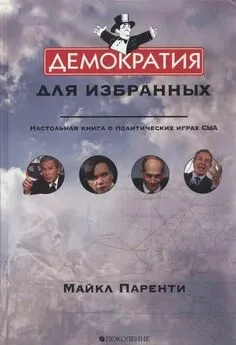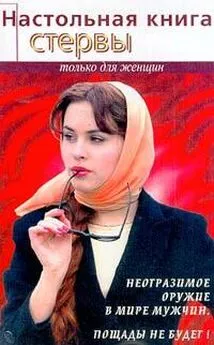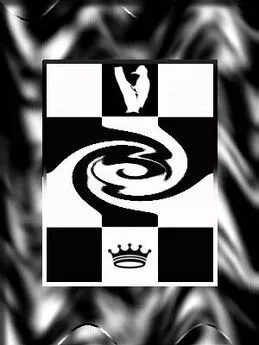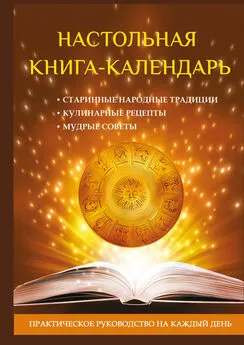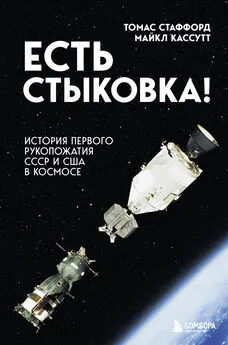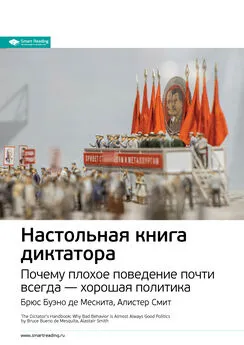Майкл Паренти - Демократия для избранных. Настольная книга о политических играх США
- Название:Демократия для избранных. Настольная книга о политических играх США
- Автор:
- Жанр:
- Издательство:Поколение
- Год:2006
- Город:Москва
- ISBN:5-9763-0016-2
- Рейтинг:
- Избранное:Добавить в избранное
-
Отзывы:
-
Ваша оценка:
Майкл Паренти - Демократия для избранных. Настольная книга о политических играх США краткое содержание
Принято считать, что США выдают себя за мировой оплот гражданских свобод, тем самым присваивая право «экспортировать» собственный тип демократии в другие страны. Что же представляет собой американская демократия на самом деле и можно ли вообще называть этот режим демократией?
Майкл Паренти — профессор политологии и гражданин США. В своей книге он дает нелицеприятную оценку господствующему в Америке политическому строю, который он метко характеризует как «демократию для избранных». Автор обличает лицемерие официальной идеологии США, выдающей власть привилегированного меньшинства за служение народу, и выдвигает американскому правительству впечатляющий список обвинений в нарушении прав человека. Его книга открывает для читателя совершенно другую Америку.
Демократия для избранных. Настольная книга о политических играх США - читать онлайн бесплатно полную версию (весь текст целиком)
Интервал:
Закладка:
486
Lawrence Walsh, Firewall: The Iran-Contra Conspiracy and Cover-Up (New York: Norton, 1997).
487
Marshall, Scott, and Hunter, The Iran-Contra Connection, 134—39 and passim; Baker, «CIA Out of Control», 81; Seymour Hersh, «The Iran-Contra Committees: Did They Protect Reagan?» New York Times Magazine, April 29, 1990.
488
Edward Pressen, The Social Background of the Presidents (New Haven, Conn.: Yale University Press, 1984).
489
Лига плюща — привилегированные университеты северо-востока США. (Примеч. пер.)
490
Sidney Aronson, Status and Kinship in the Higher Civil Service (Cambridge, Mass.: Harvard University Press, 1964); Philip Burch, Jr., Elites in American History, vols. 1—3 (New York: Holmes 8c Meier, 1980, 1981); G. William Domhoff, The Powers That Be (New York: Vintage, 1979); John Schmidhauser, The Supreme Court (New York: Holt, Rinehart & Winston, 1960).
491
G. William Domhoff, «Politics among the Redwoods», Progressive, January 1981; John Roemer, «People Writer Kicked Out by Bohemians», San Francisco Weekly, August 7, 1991; Bohemian Grove Fact Sheet, Bohemian Grove Action Network, Occidental, Calif., 1992.
492
Федеральная резервная система выполняет функции Центрального банка и контроля над коммерческой банковской системой США. (Примеч. пер.)
493
Laurence Shoup and William Minter, Imperial Brain Trust: The Council on Foreign Relations and United States Foreign Policy (New York: Monthly Review, 1977); G. William Domhoff, Who Rules America Now? (New York: Simon & Schuster, 1983); and annual reports of the Council on Foreign Relations, Pratt House, New York.
494
Shoup and Minter, Imperial Brain Trust, passim.
495
Stephen Gill, American Hegemony and the Trilateral Commission (New York: Cambridge University Press, 1991); Domhoff, Who Rules America Now?, 89, 134, and passim; Philip Burch Jr., «The American Establishment: Its Historical Development and Major Economic Components», Research in Political Economy, vol. 6 (Greenwich, Conn.: JAI, 1983), 83—156.
496
Ron Brownstein and Nina Easton, Reagan's Ruling Class (Washington, D.C.: Center for the Study of Responsive Law, 1982); Domhoff, Who Rules America Now?, 139-40.
497
Workers World, March 4, 1993.
498
New York Times, February 16, 1999.
499
Jean Stefancic and Richard Delgado, No Mercy: How Conservative Think Tanks and Foundations Changed America's Social Agenda (Philadelphia: Temple University Press, 1996); Sally Covington, «How Conservative Philanthropies and Think Tanks Transform US Policy», CovertAction Quarterly, Winter 1998.
500
Chuck Fogel, «Spying on the Union», Solidarity, March 1988; Tim Wheeler and Ron Johnson, «Files Reveal Four Years of FBI Spying on Unions, Peace Groups», People's Daily, January 28, 1988.
501
Economic Notes, Labor Research Association, March 1997.
502
New York Times, October 24, 2000; Kate Bronfenbrenner, «We’ll Close!» Plant Closing Threats, Union Organizing and NAFTA», Multinational Monitor, March 1997; Michael Yates, Power on the Job: The Legal Rights of Working People (Boston: South End, 1995); David Bacon, «Labor Slaps the Smug New Face of Union-Busting», CovertAcHon Quarterly, Spring 1997.
503
Michael Goldfield, The Decline of Organized Labor in the United States (Chicago: University of Chicago Press, 1989). For a well-documented and damning report on the anti-union state of U.S. labor law, see Human Rights Watch, Unfair Advantage: Workers' Freedom of Association Under International Human Rights Standards, .
504
Don Terry quoted in New York Times, July 31, 1998.
505
Economic Notes, January/February 1992, 3.
506
Bacon, «Labor Slaps the Smug New Face of Union-Busting.»
507
Union, Service Employees International Union, Spring 1996; UAW Report, Region 5, March/April 1998.
508
Dan Moldea, Dark Victory: Ronald Reagan, MCA, and the Mob (New York: Penguin, 1987), 66-70.
509
Michael Yates, Why Unions Matter (New York: Monthly Review, 1998); New York Times, April 22, 1993.
510
New York Times, August 31,1997; Economic Notes, May/June 1990, 4—5; Richard Freeman and James Medoff, What Do Unions Do? (New York: Basic, 1984); «OSHA Enforcement», Economic Notes, January/ February 1991.
511
Cleveland Plain Dealer, September 2, 1996; Detroit News, September 1, 1996.
512
Laurie Jo Hughes, «AIFLD: American Intervention against Free Labor Development», Nicaragua Monitor (Nicaragua Network Education Fund, Washington, D.C.), December 1991/ January 1992.
513
Quoted in New York Times, May 21, 1989.
514
See Lori Wallach and Michelle Sforza, The WTO (New York: Seven Stories, 2000); and John R. Mac Arthur, The Selling of «Free Trade»: NAFTA, Washington, and the Subversion of American Democracy (New York: Hill 8c Wang, 2000).
515
New York Times, April 30, 1996, and May 9, 1997; Washington Post, October 13, 1998.
516
Из отчета Программы развития Организации Объединенных Наций (ПРООН, United Nations Development Program) New York Times, July 13, 1999.
517
Порошок карри — смесь черного, белого, красного и душистого перца с кардамоном, имбирем, крахмалом, глюкозой и поваренной солью. (Примеч. пер.)
518
Quoted in People's Weekly World, December 7, 1996.
519
MacArthur, The Selling of «Free Trade»; John Ross, «Tortilla Wars», Progressive, June 1999; and Sarah Anderson and John Cavanagh, «Nafta's Unhappy Anniversary», New York Times, February 7, 1995.
520
For a concise but thorough treatment, see Steven Shrybman, A Citizen's Guide to the World Trade Organization (Ottawa and Toronto: Canadian Center for Policy Alternatives and James Lorimer, 1999).
521
San Francisco Chronicle, June 19, 1999.
522
Dean Alger, Megamedia: How Giant Corporations Dominate Mass Media, Distort Competition, and Endanger Democracy (Lanham, Md.: Rowman 8c Littlefield, 1998); Arthur Rowse, Drive-By Journalism (Monroe, Maine: Common Courage, 2000); Ben Bagdikian, The Media Monopoly, 5th ed. (Boston: Beacon, 1997).
523
Неполный список, см. Nation, March 17, 1997, 23-26.
524
«From the Top», Extra!, July/August 1998.
525
Alger, Megamedia, passim. Nation, March 17, 1997. Детальный отчет о захвате сети см. Dennis Mazzocco, Networks of Power (Boston: South End, 1994).
526
Daniel Zoll, «Radio Rat Poison», San Francisco Bay Guardian, September 20, 2000; Molly Ivins, «Surprise! Telecom Act Is a Disaster», San Francisco Chronicle, March 16, 1999.
527
Доклад Комиссии по свободе прессы цитируется в работе Robert Cirino, Don't Blame the People (New York: Vintage, 1972), 47; см. также Michael Parenti, Inventing Reality: The Politics of News Media, 2nd ed. (New York: St. Martins, 1993), 33-35, 47, 59.
528
Цитируется в публикации Eric Barnouw, The Sponsor (New York: Oxford University Press, 1978), 57.
529
Джонатан Куитни, телефонный разговор с Майклом Паренти, Март 1992.
530
Интервью для MediaFile, опубликовано в Media Alliance, January/February 2000.
531
Herb Kaye, ««Freedom of the Press» — for Publishers», People's Weekly World, August 22, 1998.
532
«Where s the Power: Newsroom or Boardroom?» Extra!, July /August 1998; Fear and Favor in the Newsroom, documentary film, California Newsreel, San Francisco, KQED-TV, November 12, 1998.
533
«Where's the Power: Newsroom or Boardroom?» Extra!, July /August 1998.
534
Burling Lowrey, «The Media's Honoraria», Washington Post, April 26, 1989; William Dorman, «Favors Received», Nation, October 11, 1980.
535
David Croteau, «Challenging the «Liberal Media» Claim», Extra!, July/August 1998.
536
Carl Jensen (ed.), America's CENSORED Newsletter, December 1992.
537
Todd Purdum in New York Times, January 13, 1999.
538
По словам Винсента Ширальди, директора Института полицейских судей, процитированным в публикации David Mc-Gowan, Derailing Democracy (Monroe, Maine: Common Courage, 2000), 60.
539
Обзор Morton Mintz в Nieman Reports, July 2000.
540
Robert Entman, «The Color Game: How Media Play the Race Card», Newswatch, Summer 1999.
541
«Who Gets to Speak?» Extra!, July/August 1998; Doug Ireland, «Unfit to Print», Nation, July 28-August 4,1997; Norman Solomon and JefF Cohen, Wizards of Media Oz: Behind the Mainstream News (Monroe, Maine: Common Courage, 1997).
542
«Field Guide to TVs Lukewarm Liberals», Extra!, July /August 1998.
543
William Solomon, «More Form Than Substance: Press Coverage of the WTO Protests in Seattle», Monthly Review, May 2000. On how the media misrepresented NAFTA, see Edward Herman, «Mexican Meltdown», Z Magazine, September 1995.
544
«Journalists at Work: Who's Watching the Watchdogs?» Alternative Press Review, Spring/ Summer 1998, and .
545
William Blum, Rogue State (Monroe, Maine: Common Courage, 2000), 10.
546
Parenti, Inventing Reality, passim; and Blum, Rogue State, passim.
547
Входит в состав Китая. (Примеч. ред.)
548
См. дискуссию и ссылки в главе 7.
549
Цитируется и подвергается критике в Blum, Rogue State, 10.
550
Интервал:
Закладка:
